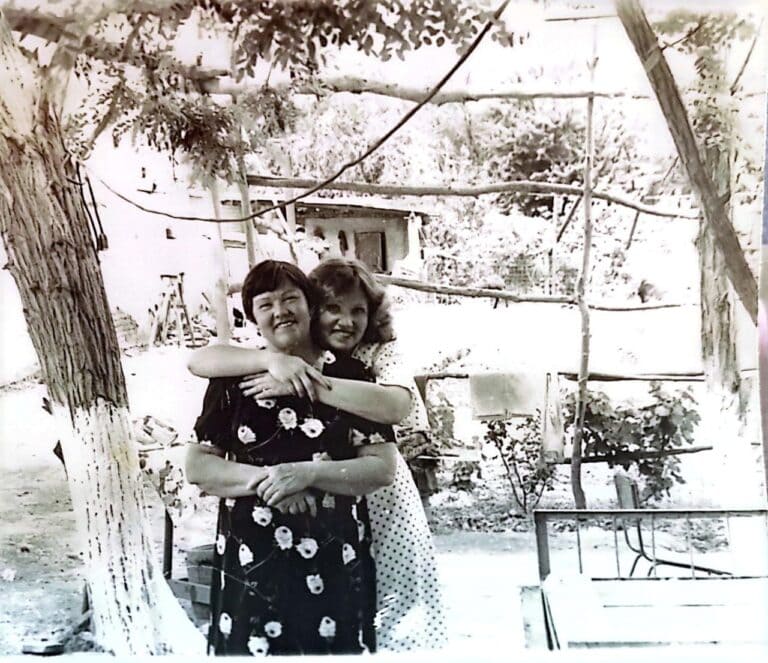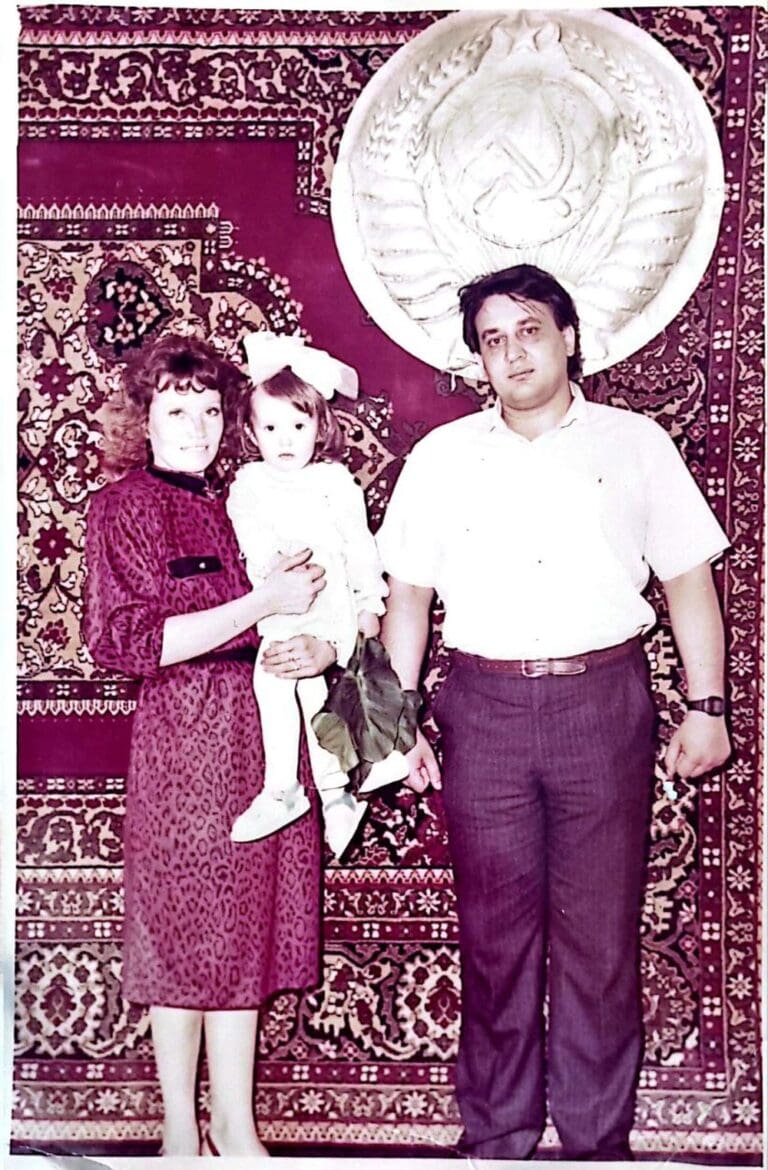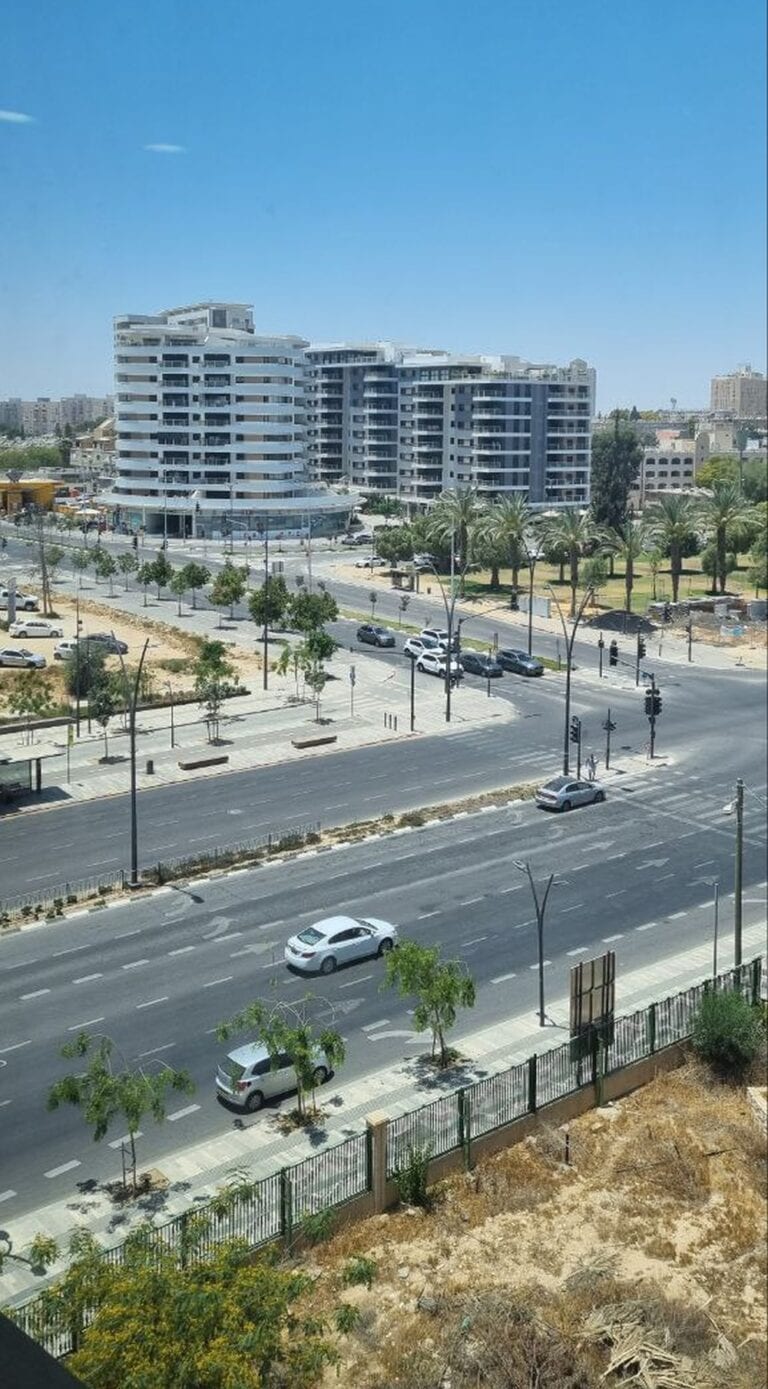A few weeks ago, an especially infuriating video from a pro-Palestinian rally in Washington, DC, began making its rounds on social media.
It was recorded by Israeli-American rapper Rami Matan Even-Esh, known by his stage name Kosha Dillz. In the video, the rapper interviews two Caucasian women who appear to be in their early 20s.
“What’s your favorite Palestinian saying?” Even-Esh asks the women, who of course reply: “From the river to the sea, Palestine will be free.”
He then asks them if Palestine is free from the Jordan River to the Mediterranean Sea, then where will all the Israelis go?
One of the women — wearing a traditional keffiyeh headdress associated in recent years with Palestinian nationalism — says the Israelis “would use their second citizenship” to go back to their respective “country of origin.”
“But not everyone in Israel has second citizenship,” Even-Esh retorts.
The blonde woman of visible European appearance, however, insists that Israelis “all come from heritage that’s outside of the Middle East.”
Even-Esh then asks her what will happen to Israelis of Ethiopian descent.
“They will go back to Ethiopia,” she replies undeterred.
“What about Libyan Jews?” he asks.
“They will go back to Libya,” replies the protester. “From wherever country they came from,” she adds.
“Like Yemen?” he asks her.
Now visibly annoyed, the woman then decides to offer a compromise. “They can stay and be part of the Palestinian territory.”
The two then begin shouting in unison that people must “educate themselves.”
“Do we [Americans] live on stolen land?” he asks the two women. While both reply yes, they stop short of offering to go back to their “country of origin.”
Of all the hundreds of thousands of similar videos that have flooded social media since the start of Israel’s war against Hamas, that one in particular stuck with me the most.
Putting aside the hypocrisy of the two and claims that Hamas terrorists are freedom fighters, their complete lack of self-awareness and any kind of in-depth knowledge on the issue was astounding. Especially given their apparent passion on the topic.
Straight from the emirate in Central Asia
My family immigrated to Israel over 20 years ago from a former Soviet Union country in Central Asia called Turkmenistan. I am part Russian, but I have never lived in Russia and neither have my parents.
My mother’s Russian parents were “sent away” by the Communist Party in the 1950s to develop remote parts of the Soviet Union. My father, meanwhile, is a Bukharian Jew. His family lived in the region for centuries since the ethno-religious subgroup originated in the former Central Asian emirate of Bukhara (modern-day Uzbekistan), which once had a sizable Jewish population.

His family eventually settled in a territory that later became Turkmenistan. Once part of the Islamic world and an important stop on the Silk Road, it was annexed by the Russian Empire in 1881 and in 1925 officially became part of the Soviet Union.
The Soviet Union made Russian the official language along with native Turkmen, and suppressed all religious activity.
Growing up as a child there, I never experienced antisemitism. Your religion didn’t matter because it wasn’t publicly discussed or deemed important. Although I was born on the cusp of the fall of the Soviet Union, its principles were holding strong for years.
But in the late 1990s, things began to change.
Out with the old
First, the Russian language, which is my mother tongue, started losing its standing. The government decreed that in the morning hours, schools would teach only in Turkmen, while Russian-speaking students would start the school day at 1pm at the earliest. I still remember coming home from school at night.
In addition, religion slowly began to reemerge. It started with an introduction of a unique school uniform, especially for girls. All girls had to wear long dresses, covering their knees and elbows. The dresses had to be green — a color traditionally associated with Islam due to its references to paradise in the Quran.

The country also began forging closer ties with the neighboring states — Iran and Afghanistan. I vividly remember Iranian men walking the streets of our city. They were easily distinguishable because they wore floor-length traditional Muslim kaftans, which to me as a child looked like dresses.
My dad, who worked at the barber shop of our city’s only hotel, used to say the Iranians were the best tippers. They didn’t know he was a Jew. Matter of fact, no one did. It was a “don’t ask, don’t tell” type of policy.
I didn’t know about that policy as a child. I once told a teacher about my ethnicity, since she claimed she couldn’t figure out the origins of my last name. She had an expression of shock on her face that I will never forget. “You don’t look like it,” she told me.
As religion was getting a stronger hold of the country, the family musings of immigrating to Israel began growing stronger. The only thing that was stopping my parents was the idea of starting life over at 40. But ultimately, the choice was clear and at the start of the new millennium, we officially kickstarted the process of emigrating.
Incidentally, we settled in Beersheva, only 41 kilometers from the Gaza Strip. Battered by rockets and barely saved from the October 7 onslaught.

Secret weapon
Fast forward 20 years. Turkmenistan is now a repressive totalitarian regime, considered by various rights organizations as one of the worst places on earth to live, outside of maybe North Korea.
Women have been banned from driving, while girls are now prohibited from attending school beyond the ninth grade.
Food is also reportedly scarce, with people waiting for hours on end to get their hands on a loaf of bread.
But, if you ask Gen Zers from the US who have never encountered a real hardship in their lives, they’ll tell you I should go back and “educate myself.”
I am sure it is very welcoming to Jews. Just look at all the prospering Jewish populations in the rest of the Islamic world. Maybe I should go back to neighboring Afghanistan; their last living Jew just left, so there’s a spot open.
While we’re at it, Yemenite Jews should definitely go back to Yemen, especially since the country’s Houthi movement recently declared a war on Israel and launched cruise missiles at it.
This type of ignorance does make you feel like giving up.
But, to paraphrase Golda Meir: We Jews have a secret weapon in our struggle with the anti-Israel movement – we have no place to go.

















